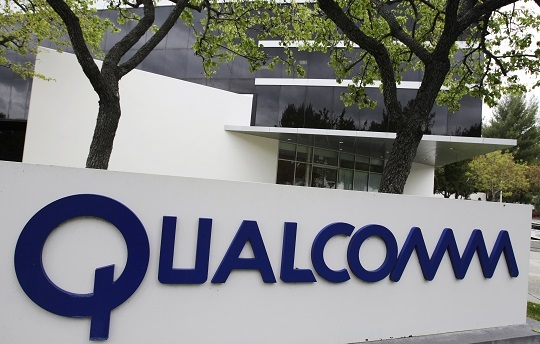Legal representatives of Qualcomm on Monday refuted the Korean antitrust watchdog’s claim that it had an “unfair business model” during the first hearing to take place since the chipmaker filed an appeal to the Seoul High Court in February 2017 against over 1 trillion won ($885 million) in penalties.
In December 2016, the FTC found Qualcomm guilty of monopolistic practices, imposing penalties and ordering the company to carry out renegotiations with its clients over patent use.
One of the key points of the latest hearing was whether Qualcomm -- which has around 25,000 standard-essential patents in the mobile communications areas -- violated FRAND terms, unfairly hindering business activities of other companies.
FRAND -- Fair, Reasonable and Non-Discriminatory -- is a standard set by the European Telecommunications Standards Institute to make patent holders provide their patent licenses under fair and rational conditions as a foundation for new ideas.
 |
(Yonhap) |
“We do not violate FRAND terms because we have no obligation to provide license of modem chips under FRAND terms. Modem chips are not applied to FRAND rules,” a representative of Qualcomm told the judges.
“(Even if they are under FRAND terms) there is no legal ground that the violation of FRAND terms only should be translated as a limitation on competition,” the lawyer said.
During the trial, representatives from Apple, Intel and Huawei were also present to support the FTC. Samsung, which was an initial assistant to the FTC, was not present as it has decided not to be involved in the case, having expanded its cross-licensing agreement with Qualcomm in February.
“Qualcomm’s violation of FRAND terms is perceived as a restriction on competition. If the unfair business practices continue, the firm’s violating competition laws and dominating the market will be uncontrollable,” said a representative from the FTC.
She also said because of Qualcomm’s domination of the market through unfair practices, all rivals producing modem chipsets were kicked out of the market except for Intel.
Nine rivals, including Broadcom, Nvidia, Ericsson and Texas Instruments, are no longer selling the chipsets although the mobile communications market has doubled since 2008, the representative said.
A lawyer from Apple supported the FTC’s claim, saying it was not able to use Intel’s modem chips for several years due to Qualcomm’s unfair business practice.
Qualcomm’s representative, however, refuted the claim, saying that the disappearance of the rivals is due to other reasons such as financial difficulties or inabilities to retain the businesses.
The historic trial between the US tech giant and the nation‘s FTC is expected to last throughout the year, with more than 50 lawyers from seven major law firms involved. Similar investigations and legal battles between Qualcomm and antitrust regulators over the unfair business practices are ongoing in other nations, including the US, European Union, China and Taiwan.
By Shin Ji-hye (
shinjh@heraldcorp.com)








